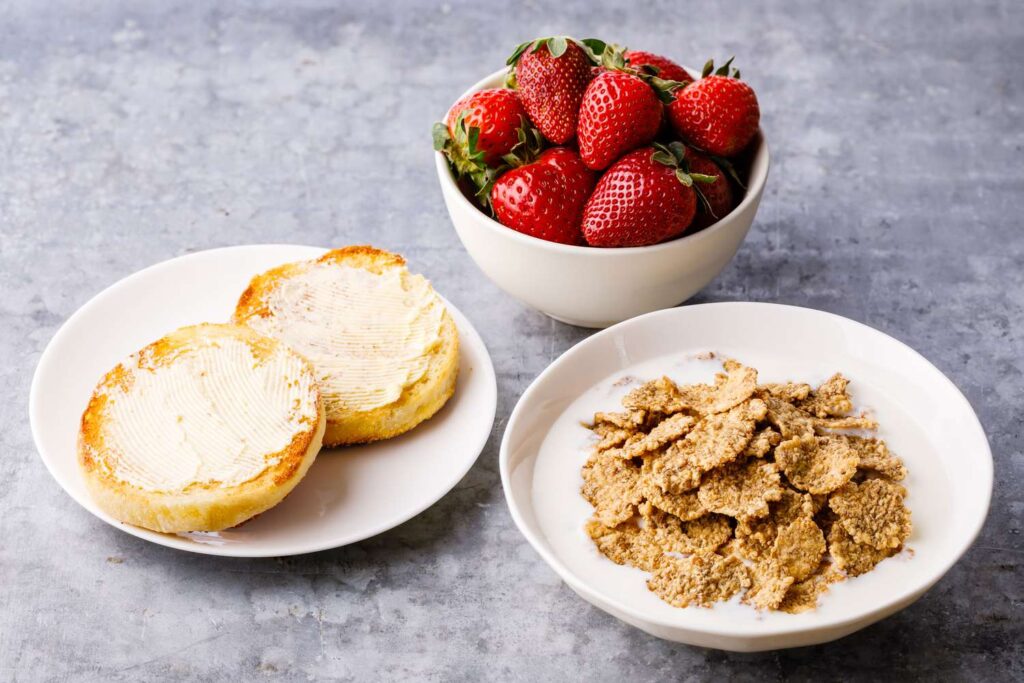Stop Acid reflux, or gastroesophageal reflux disease (GERD), affects millions worldwide, causing discomfort with symptoms like heartburn, chest burning, and throat irritation. Managing symptoms largely comes down to dietary and lifestyle changes. This article offers an in-depth look at foods that help stop acid reflux, guiding you to make smart eating choices that soothe your stomach and prevent flare-ups.
Table of Contents
Understanding Acid Reflux and Its Triggers
Acid reflux happens when stomach acid backs up into the esophagus due to a weak lower esophageal sphincter. Certain foods exacerbate this by increasing acid production or relaxing the sphincter, leading to symptoms. Common triggers include spicy foods, fatty fried meals, citrus fruits, caffeine, chocolate, and carbonated drinks.
Best Foods to Eat to Stop Acid Reflux
Choosing foods that are gentle on the stomach and reduce acid reflux symptoms is key. These include:
-
Oatmeal: A high-fiber food that absorbs stomach acid and provides long-lasting fullness.
-
Low-Acid Fruits: Bananas, melons (watermelon, cantaloupe, honeydew), apples, and blueberries help soothe the stomach without adding acid.
-
Leafy Greens: Spinach, kale, lettuce, celery, and sweet peppers are low in fat and acid, and can reduce irritation.
-
Lean Proteins: Skinless poultry, turkey, fish (grilled, broiled, or baked), tofu, and legumes are easier to digest and less likely to trigger reflux.
-
Whole Grains: Brown rice, whole grain bread, and barley are mild and filling carbohydrate options.
-
Ginger: Has natural anti-inflammatory properties that can reduce nausea and digestive irritation. Enjoy ginger tea or incorporate fresh ginger in meals.
-
Fennel: A crunchy, low-acid vegetable with a mild licorice flavor that soothes the digestive tract.
-
Boiled or Steamed Vegetables: Zucchini, carrots, broccoli, asparagus, and green beans are gentle and less likely to aggravate symptoms.
Foods and Drinks to Avoid for Relief
Avoiding foods that increase acid or relax the esophageal sphincter helps prevent symptoms:
-
Citrus fruits (oranges, lemons, grapefruit), tomato-based products, garlic, onions, and spicy foods.
-
Fried and fatty foods, including full-fat dairy products.
-
Caffeinated beverages, alcohol, carbonated drinks, chocolate, and peppermint flavors.
-
Sugar-laden and highly processed foods with artificial sweeteners or trans fats.
Sample Acid Reflux Diet Plan
Incorporate these foods into your daily diet for gradual symptom relief:
-
Breakfast: Oatmeal with banana and a cup of ginger tea.
-
Mid-Morning Snack: An apple or melon slices.
-
Lunch: Grilled chicken breast with brown rice and steamed vegetables like broccoli and carrots.
-
Afternoon Snack: Plain low-fat yogurt or a handful of almonds.
-
Dinner: Baked fish with boiled zucchini and green beans.
-
Drink water throughout the day and avoid eating large meals late at night.
Lifestyle Tips to Support Acid Reflux Management
-
Eat smaller, more frequent meals instead of large portions.
-
Avoid lying down immediately after eating; wait at least 2-3 hours.
-
Elevate the head of your bed to prevent nighttime reflux.
-
Maintain a healthy weight to reduce abdominal pressure.
-
Avoid smoking and limit alcohol intake.
FAQs
Q: Can acid reflux be cured by diet alone?
A: While diet plays a significant role in managing acid reflux, some cases may require medication or medical treatment for full control. Dietary changes often reduce symptoms significantly.
Q: Are there any drinks that help acid reflux?
A: Non-caffeinated herbal teas like ginger or chamomile tea can soothe the digestive system. Water is always a good choice, but avoid carbonated or acidic drinks.
Q: How long does it take to see improvement after changing diet?
A: Many people notice symptom improvement within days to weeks after adopting an acid reflux-friendly diet, but this varies individually.
Q: Is oatmeal good for stop acid reflux?
A: Yes, oatmeal is a great high-fiber food that absorbs stomach acid and reduces reflux symptoms.
Q: Are spicy foods always bad for acid reflux?
A: For most people with acid reflux, spicy foods aggravate symptoms. However, tolerance varies, so it’s best to avoid or limit spicy items if symptoms worsen.
Conclusion
Dietary changes emphasizing low-acid, high-fiber, and lean foods combined with lifestyle adjustments can effectively reduce acid reflux symptoms and enhance digestive health. Following this guide helps prevent painful reflux episodes and promotes long-term relief.
All information is based on current clinical guidelines and expert recommendations on acid reflux nutrition and management.

